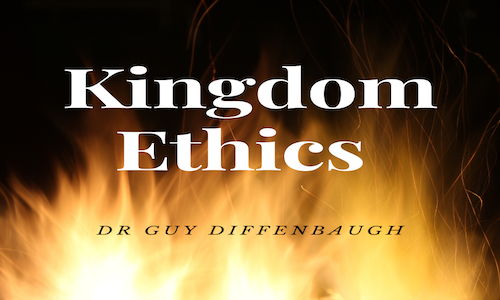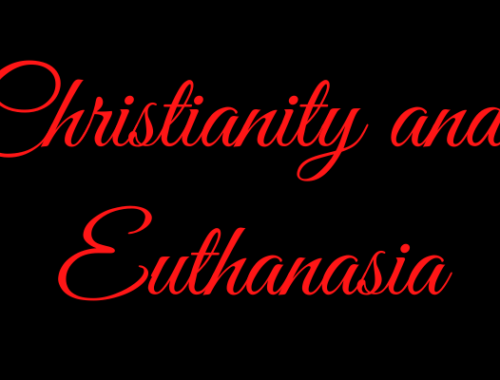
Christian Ethics
The Lord has instructed me to give an impassioned plea for His Kingdom and your destined purpose within it.
Jesus said the harvest is plentiful, but the laborers are few; pray therefore that the Lord of the Harvest send forth laborers into the harvest (Matthew 9:35-38). The greatest harvest ever known is upon us in this decade. Will you respond? We can’t become complacent and put this off. Although God has been extremely patient and continually grants mercy, He will not do so for ever. The prophet Obadiah warns that God will not tolerate wickedness forever (Obadiah 1:15).
But Dr Guy, He continues to have mercy so what is imperatively special about today? The broad answer is that today is the day of salvation. The more succinct answer is that although people may not be any more wicked today than we see in the scriptures, modern culture has created the tools that accelerate the propagation thereof. Communication is instantaneous today allowing both good and evil to thrive as never before. This blinding speed often does not give time to contemplate and requires immediate response. Your response directly correlates to who is upon the throne of your life.
Where is our moral compass? Our ethics need close scrutiny. The dictionary defines ethics as the discipline dealing with what is good and bad and with moral duty and obligation. The term is also applied to any system or theory of moral values or principles.
Ethics in the Bible refers to the system(s) or theory(ies) produced by the study, interpretation, and evaluation of biblical morals, (including the moral code, standards, principles, behaviors, conscience, values, rules of conduct, or beliefs concerned with good and evil and right and wrong). Because the Bible in its entirety is the revelation of Jesus Christ, I equate Biblical and Christian ethics.
In 1976 theologian Dr. Francis Schaeffer wrote an important book entitled: How Should We Then Live? He traced western history from ancient Rome to the present considering philosophy, science, and religion. Schaeffer’s central premise is when we base society on the Bible, on the infinite-personal God who is there and has spoken, this provides an absolute by which we can conduct our lives and by which we can judge society. This leads to what Schaeffer calls “Freedom without chaos.” When we base society on humanism, which he defines as “a value system rooted in the belief that man is his own measure, that man is autonomous, totally independent”, all values are relative, and we have no way to distinguish right from wrong except for “synthesis, pragmatism, and utilitarianism.”
The simple profound truth: If there are no absolutes by which to judge society, the society is absolute. Society is left with one man or an elite filling the vacuum left by the loss of the Christian consensus which originally gave us form and freedom.” Does this sound familiar to you? It should, as this is precisely where we are today.
The Bible provides the only absolute standard for morality. All Scripture is given by inspiration of God, and is profitable for doctrine, for reproof, for correction, for instruction in righteousness, that the man of God may be complete, thoroughly equipped for every good work. (2 Timothy 3:16–17)
Jesus Christ, the Son of God, regarded Scripture as the ultimate standard. He claimed, “Your word is truth” (John 17:17) and “the Scripture cannot be broken” (John 10:35). Scripture is truth from God and therefore must be our foundation in every area, “that the man of God may be complete, thoroughly equipped for every good work.” The Bible is our basis for ethics.
The highest ethical duty of a Christian is the same as the greatest commandment: love God and love your neighbor. Scripture is the Christian authority for ethics, just as it is for theology. This is because God is our ultimate authority and standard, for he himself is goodness.
Christian Ethics and Scripture
Evangelical Christians should not find it controversial to say that the Scriptures—God’s Word—is our authority and standard for ethics, just as it is for theology. This is because God is our ultimate authority and standard. There cannot be a higher standard for ethics than God, not because he is all-powerful, but because he is the source of goodness itself. Moral goodness is defined by the nature of God, and everything he commands is in accordance with his perfect and righteous goodness. We must obey every word of God because every word he gives us flows from his character, and his character is infinite and absolute moral perfection. God does not measure himself against an abstract standard of goodness; he does not consult anything other than his own nature when he issues commands and moral rules. His moral commands are not arbitrary, and they could not be other than what they are since they are based on God’s unchanging moral goodness. Since God’s commands are found in Scripture, the Bible is our authority for ethics.
Christian Ethics in Today’s World is of extreme importance. Some issues in certain societies are relatively recent, like legalized abortion and same-sex marriage. Other issues are more universal and perennial, like general sexual issues or the justification of self-defense and war. Sometimes God has spoken clearly and directly about an ethical issue (e.g., do not steal), but there are other topics that could not have been directly addressed in the Bible (e.g., issues that require contemporary technology, like genetic engineering or in vitro fertilization). Even when the Bible does not specifically speak to an issue, there are biblical principles that can be relied upon to make an informed moral judgment. And the principles are not subject to choice, compromise, or personal whim. You will never be settled in your faith until you accept the word, the Bible, as inerrant.
Back to Francis Schaeffer’s question: How shall we then live? From my perspective I see the question as a choice between two destinies: either eternity with God or eternity with Satan. God created man in His image and gave us free will. So, the choice is yours and it is absolute. Anything less than absolute defaults to Satan. Any choice other than 100% God and you will hear the Lord at judgement say: “I never knew you, get thee from me.”
Saints, reject the bait of Satan. He is a liar and seeks your destruction. He is a thief wanting to steal everything God has given you. He is after your faith and your anointing. The more the anointing grows in your life the greater target you become. Worship leaders are probably the greatest target because the real question is worship. When Jesus was tempted in the desert for forty days, prior to beginning His earthly ministry, recall how Satan tempted Him: “ I will give you my kingdom if you will bow down and worship me.” Next in order would be those that bring the good news of the Gospel. Even if you don’t fit in those categories you don’t have a pass. Satan wants all God’s people, but especially those active on the front lines of battle. The Devil is quite adept at using a vast array of tactics to blindside or seduce even the elect of God, and bring ruin and destruction. A wise father to stand with you and see the traps set for you is very much needed in this hour. Always be on guard as it only takes a small opening for the devil to set his hook to begin your destruction. Seek His presence, meditate on His Word and pray in the Spirit.
How then shall I live being a constant target? In Romans 10:8-10 the Apostle Paul tells us: “The word is near you; it is in your mouth and in your heart,” that is, the word of faith we are proclaiming: that if you confess with your mouth, “Jesus is Lord,” and believe in your heart that God raised Him from the dead, you will be saved. For with your heart you believe and are justified, and with your mouth you confess and are saved.”
Then realize the Great Mystery, Christ in you, the hope of Glory (Colossians 1:27). The anointing lives in you and you must live in the anointing. Let Holy Spirit guide and empower you. You have been given authority – use it. Protect the anointing at all costs as it is your empowerment.
Listen again to the Apostle Paul in Colossians 3:12-17 “Therefore, as the elect of God, holy and beloved, put on tender mercies, kindness, humility, meekness, longsuffering; bearing with one another, and forgiving one another, if anyone has a complaint against another; even as Christ forgave you, so you also must do. But above all these things put on love, which is the bond of perfection. And let the peace of God rule in your hearts, to which also you were called in one body; and be thankful. Let the word of Christ dwell in you richly in all wisdom, teaching and admonishing one another in psalms and hymns and spiritual songs, singing with grace in your hearts to the Lord. And whatever you do in word or deed, do all in the name of the Lord Jesus, giving thanks to God the Father through Him.”
Worship, Intercede, & Believe so that you can add action to your most Holy Faith. The action of obeying the two commandments Jesus said were the greatest, i.e., Love the Lord your God with all your heart and with all your soul and with all your mind and with all your strength and love your neighbor as yourself, place the Christian on track and make derailment very difficult. These actions enable God to add His anointing such that you can fulfill your providential purpose.
The great prayer of Jesus, found in John 17, is that we be one as He and the Father are one. Jesus imparted the model and it worked well until 70AD when Rome intervened. Christianity has struggled, regressed, went through reformations, but never regained or recognized Christ’s model until recently. With recent acknowledgement and growth of the five ministry gifts given by our Lord we are beginning to see the emergence of the first century Ecclesia of Christ. Ecclesia is a Greek word improperly translated to church. Church means assembly whereas Ecclesia has a totally different meaning. Ecclesia is Christ’s government which we are to decree and exercise on this earth. Ecclesia is regional because cultures are regional. Culture must take on Kingdom nature. Being a part of a regional Ecclesia, I can attest to the power thereof. If you find this proven concept offensive, and you well may as it is contrary to church, I encourage you to pray through as it was given by Jesus and worked perfectly in first century Christianity. As Christ prayed, we need to become one and in so doing accomplish our providential purpose as His Ecclesia.
Unlike the foolish virgins in one of Jesus parables with no oil in their lamps when the Bridegroom came in the night, keep your vessel full. Anticipate and always be ready and willing. In Luke 14 and Matthew 22 Jesus teaches his disciples by parables similar to the foolish virgins. Luke 14 concerns a banquet where many of those invited and presented flimsy excuses as to why they are unable to attend. The Master was furious and sent his servants out to invite the masses that his table would be full. The point Jesus is making is that for those to whom He was sent to atone for their sin to be so involved in our own affairs as to have no time for Him is appalling.
In Matthew 22, the King has a wedding feast. Some show without the proper garment and are cast out. The point is that we can’t come clothed in our own righteousness but only in Christ’s. Mercy only extends so far. The parable of the Wedding Garment ends with Jesus saying that many are called but few are chosen.
We are here to establish Kingdom and ensure that the lost are reached. The Remnant will be small. I will be a part – will you? Take your share today. Remember it is written that we win. I can’t imagine how anyone could neglect so great a salvation. You may not have a tomorrow to get it right with the Lord, so if that is you repent and receive the free gift of salvation by making Jesus your Lord. Take your share, fight the good fight and witness the victory. Eternal joy and Glory is our inheritance with our King. We will rule and reign with Jesus as co-inheritors of the Nations. Sharpen your focus on the King of Glory and be blessed today and always. Amen.




